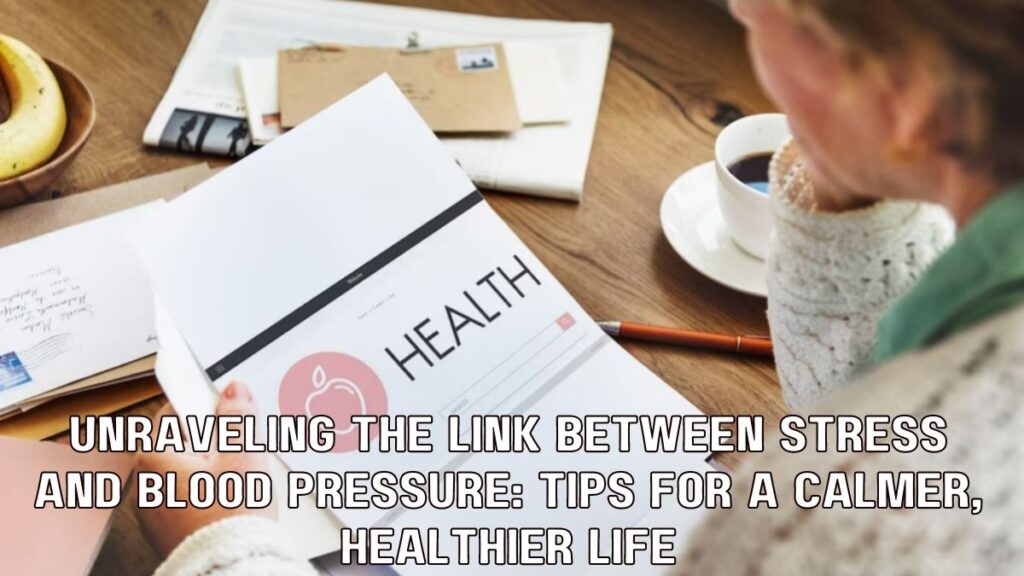Introduction:
In today’s fast-paced world, stress has become a common part of our lives. While occasional stress is a natural response, chronic stress can have detrimental effects on our health, including an impact on blood pressure levels. Understanding the link between stress and blood pressure is crucial in maintaining a calm and healthy lifestyle. In this blog post, we will explore the connection between stress and blood pressure and provide practical tips to help you lead a calmer, healthier life.
The Stress-Blood Pressure Connection:
When we experience stress, our bodies release stress hormones, such as cortisol and adrenaline, which can temporarily raise blood pressure. This physiological response is designed to prepare us for “fight or flight” situations. However, chronic stress keeps these hormones elevated, leading to long-term increases in blood pressure. Over time, this can contribute to the development of hypertension and increase the risk of cardiovascular diseases.

Tip 1: Identify and Manage Stress Triggers
Start by identifying the sources of stress in your life. They may include work-related issues, personal relationships, financial concerns, or health problems. Once you identify the triggers, develop effective strategies to manage and reduce stress. This may involve setting boundaries, seeking support from loved ones, practicing time management techniques, or considering therapy or counseling.

Tip 2: Practice Relaxation Techniques
Incorporate relaxation techniques into your daily routine to counteract the effects of stress on blood pressure. Deep breathing exercises, meditation, yoga, and progressive muscle relaxation are effective methods to promote relaxation and reduce stress levels. Find what works best for you and allocate dedicated time each day to practice these techniques.
Tip 3: Engage in Regular Physical Activity
Physical activity not only benefits your physical health but also has a positive impact on your mental well-being. Regular exercise releases endorphins, which are natural mood boosters. Aim for at least 30 minutes of moderate-intensity exercise most days of the week. Choose activities that you enjoy, such as walking, dancing, swimming, or cycling, and make them a priority in your schedule.
Tip 4: Prioritize Self-Care
Self-care is crucial for managing stress and maintaining overall well-being. Make time for activities that bring you joy and relaxation. This may include reading, listening to music, spending time in nature, taking baths, or practicing hobbies. Remember, taking care of yourself is not selfish but essential for your mental and physical health.
Tip 5: Foster Healthy Relationships
Strong social connections can provide emotional support and help buffer the effects of stress. Surround yourself with positive and supportive individuals who uplift you. Engage in activities that promote social interaction, such as joining clubs, volunteering, or participating in group activities. Building and maintaining healthy relationships can contribute to a calmer and more fulfilling life.
Conclusion:
Understanding the link between stress and blood pressure is an important step towards managing your overall health. By implementing these tips and adopting a holistic approach to stress management, you can reduce the impact of stress on your blood pressure and improve your overall well-being. Remember, it’s essential to seek professional help if you’re struggling with chronic stress or hypertension. Prioritize self-care and make a conscious effort to create a calmer, healthier life for yourself.

